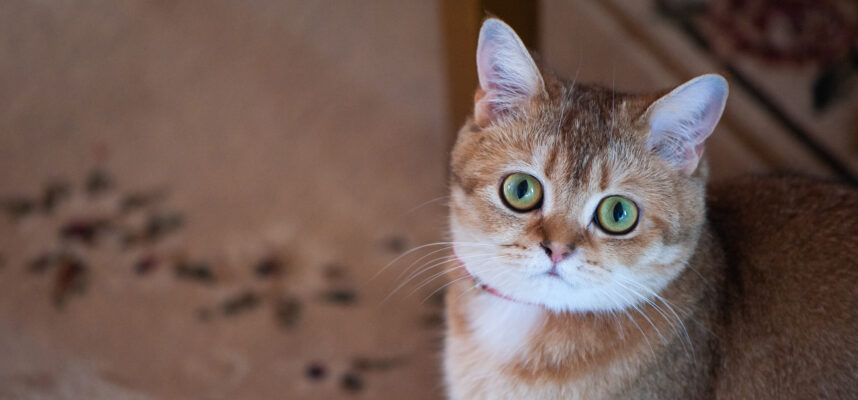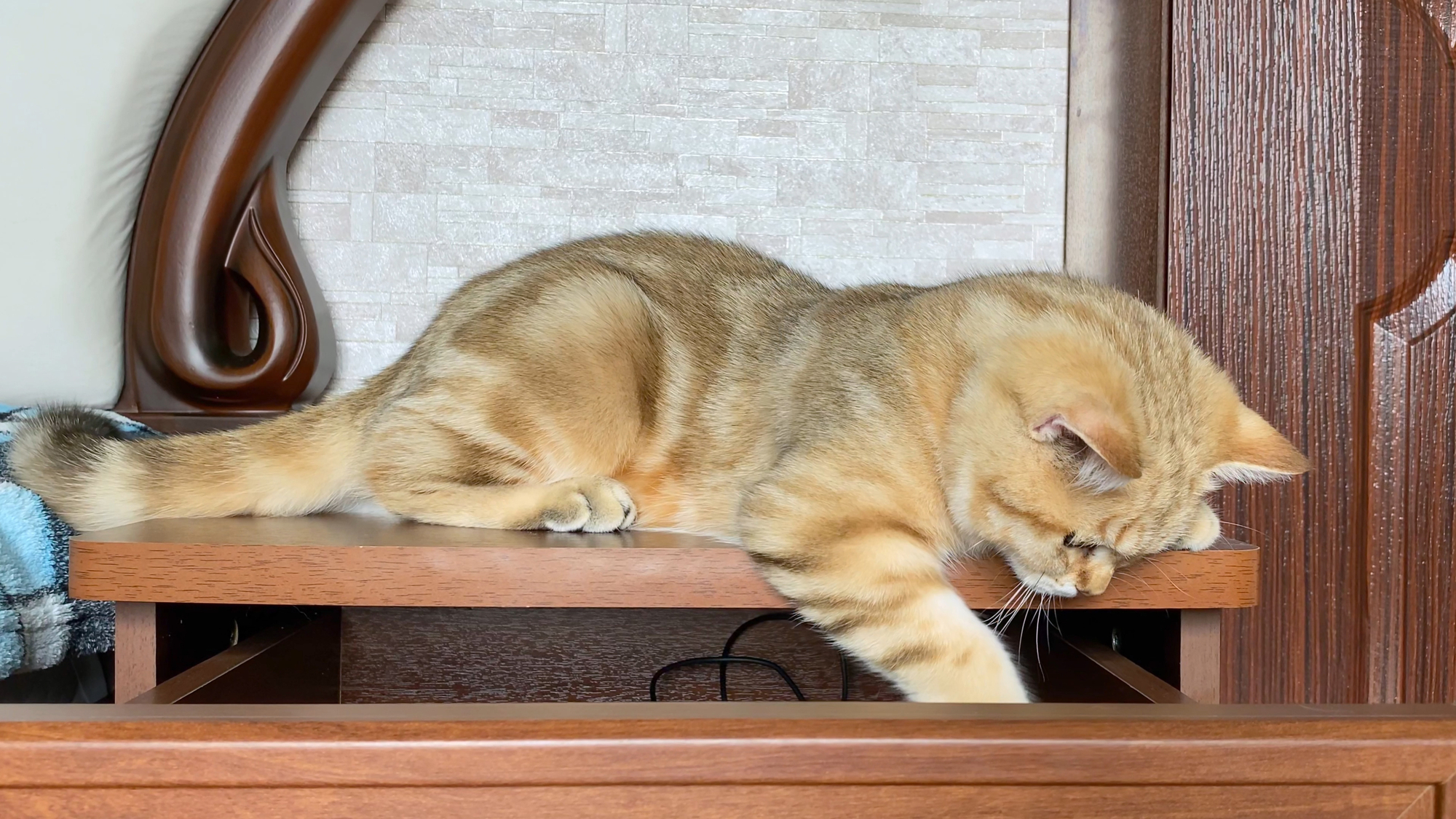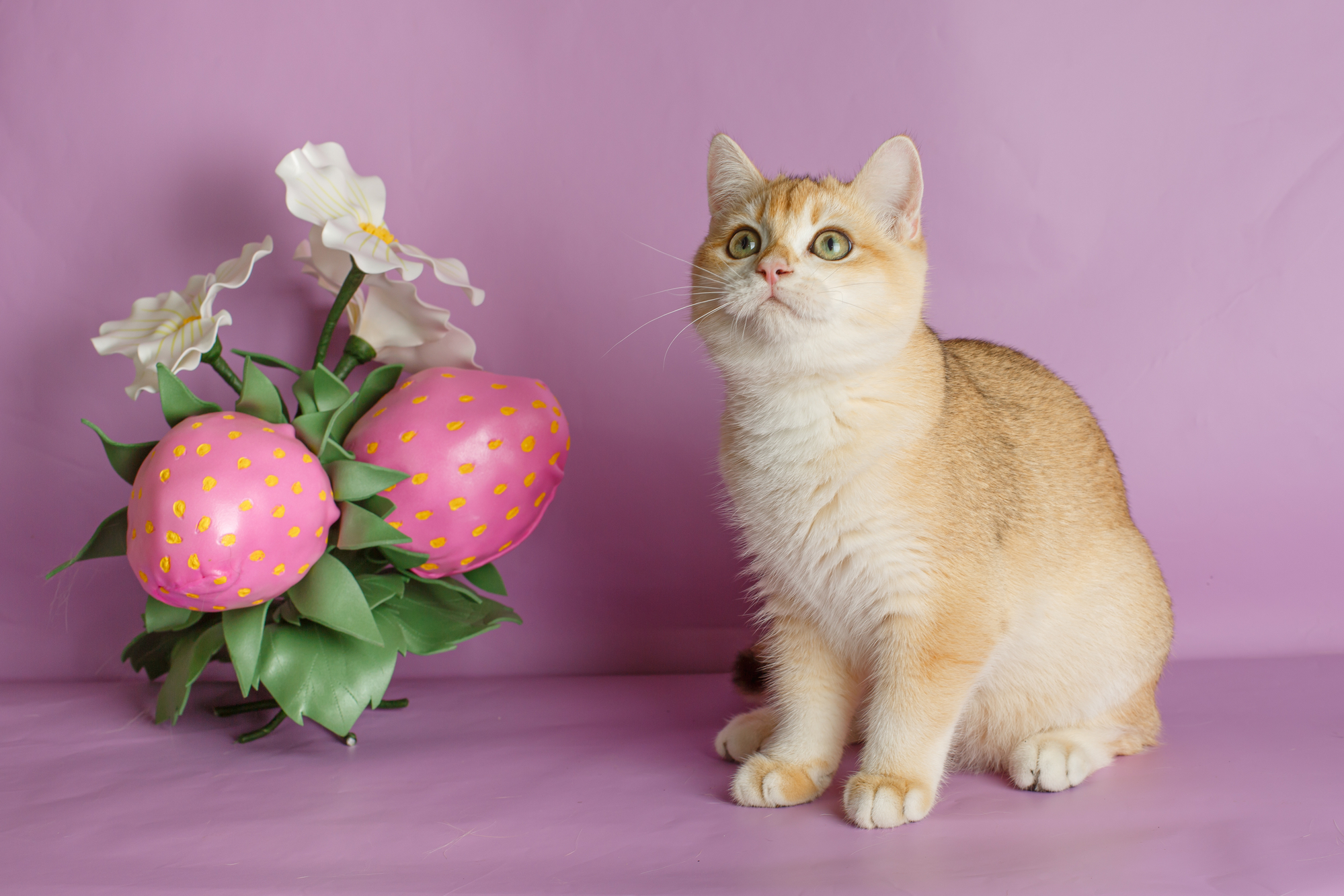
British golden chinchilla care rules
Caring for a British golden chinchilla has its own characteristics. In order to preserve the aristocratic beauty of a cat for many years, the owner is required to maintain the natural data of a thoroughbred pet. Some breed standards distinguish this feline from their relatives. Not only external attractiveness is unique, but also a feature of the physique, quality of wool, body weight. In this article, we’ll take a look at how to care for a British chinchilla.
Content:
- Hygiene products
- Hair care
- Clipping claws
- Scratching post for Britons
- Toilet training and which tray to choose
Hygiene products
British golden chinchillas love bathing. These procedures can be carried out as needed. For cats, everything is individual. The frequency of bathing depends on the season, the moulting season, the pet’s well-being, and whether it is taken for walks.
Bathing a British cat or cat is necessary only with special products purchased at a veterinary store or pharmacy. Bathing products must be safe and hypoallergenic, specially designed for hygienic, prophylactic or therapeutic purposes.
Dental care
The quality of life of the pet depends on the health of the teeth. The reason for the deterioration of the condition of the teeth, in addition to injuries, is usually: improper nutrition – destroyed from the inside, lack of hygiene – deteriorate from the outside. Some cat owners are surprised by the need to provide oral hygiene to their pet.
In nature, everything is reasonably arranged. Street representatives of the feline family perform the procedure of cleaning their teeth on their own and teach their offspring to do it. They chew the bark of trees and bones, this allows them to clean the dentition from plaque and stones. During the warm season, street cats eat grass to prevent gum disease.
At home, felines are deprived of the opportunity to fully care for the oral cavity. Therefore, it is the owner’s task to help them in this. In addition to hygienic care, a cat needs calcium for dental health.
A vitamin complex for British golden chinchilla should be recommended by your veterinarian. The British have a large body weight (females up to 4-5 kg, males from 4 to 10 kg), so the dosage should be individual. It is necessary to choose the correct dosage so that there is neither a deficiency nor an excess of the mineral.
If the British cat is on a natural diet, bones should be added to its diet. For example, buy chicken necks or buy special products for the prevention of plaque and calculus at the veterinary store. It is forbidden to give long bones to members of the feline family, they damage the gastrointestinal tract. The consequences can be very serious and fatal.
Hair care
The coat of the British golden chinchilla includes the guard hair and the undercoat, this effect creates a plush coat. Therefore, such wool is combed with a special brush. The procedure should be carried out once a week. During the moulting period, comb your feline pet more often. Healthy cats molt from September to November and from February to April.
Claw clipping
The procedure for a British cat is carried out every 3 weeks. The frequency depends on the growth rate of the claws. Claws are trimmed 1/3 of the upper part (indentation is about 2 mm) so as not to touch the blood vessels that run in the inner part of the claw. The ends of the claws are cut at an angle of 90 degrees. The cut line should be facing inward, not outward.
There should be good lighting in the room so as not to cut off the cornea of the claw too much and not injure the pet. Not confident in their abilities, you can conduct the first claw trimming ritual under the supervision of a veterinarian. The procedure is best done when the animal is full and is about to rest, that is, it is in a relaxed state.
If the injury could not be avoided, the bleeding area is treated with a swab moistened with 3% hydrogen peroxide. It is not recommended to use products that cause a burning sensation, so as not to permanently discourage the pet from cutting its nails. In case of severe bleeding, you must immediately show the animal to a veterinarian.
It is better not to save on claws. A cheap tool quickly becomes dull. This leads to splitting and delamination of the plate, causing discomfort for the pet when walking. The problem will be partially solved by a special nail file, but you need to choose a suitable nail clipper.
There are three types of tools for trimming the claws of a cat: secateurs with a spring and a stop, blisters with curved tips like manicure scissors, guillotines with a blade in the hole between the handles.
The choice depends on the age of the animal, on the density and structure of the claw. It is best to consult with your veterinarian or a qualified vendor at a professional veterinary store which clipper to purchase.
Scratching post for the British
When choosing a scratching post for a Briton, it is very important to consider the reliability of the structure. This moment must be discussed with the seller, inform him that the pet is large and just a beautiful device will not work. Cardboard racks and houses of the game complex can collapse under the impressive weight of the British. This can cause severe fright in the animal or even lead to injury.
For the British breed, a separate claw grooming device or play set must be made of wood or durable plastic. When buying, you need to pay attention not only to the strength of the structure, but also to the fasteners, they must be metal. The type of scratching post can be any: posts, couches, wall, houses, playgrounds.
Toilet training – which tray to choose
It is better to purchase a cat litter deep and spacious. British cats are large and will not fit in a small, low litter box. Many felines prefer a high-sided litter box. The ideal option for a pet is a fully enclosed toilet with an entrance. This is due to the natural need of cats to relieve themselves in secluded places.
The filler must be selected in accordance with the preferences of the pet. Some cats like to use a litter box of wood or cellulose pellets, others like clumping clay, bentonite or silica gel litter.
Each cat has individual preferences for the shape and size of the litter box, as well as for the litter. When buying a filler, you need to adhere to the basic criteria for making the right choice: so that it absorbs moisture with high quality, absorbs odors, and does not stick to the paws.
Caring for British golden chinchillas is uncomplicated. The main thing is to take into account the characteristics of the breed.
